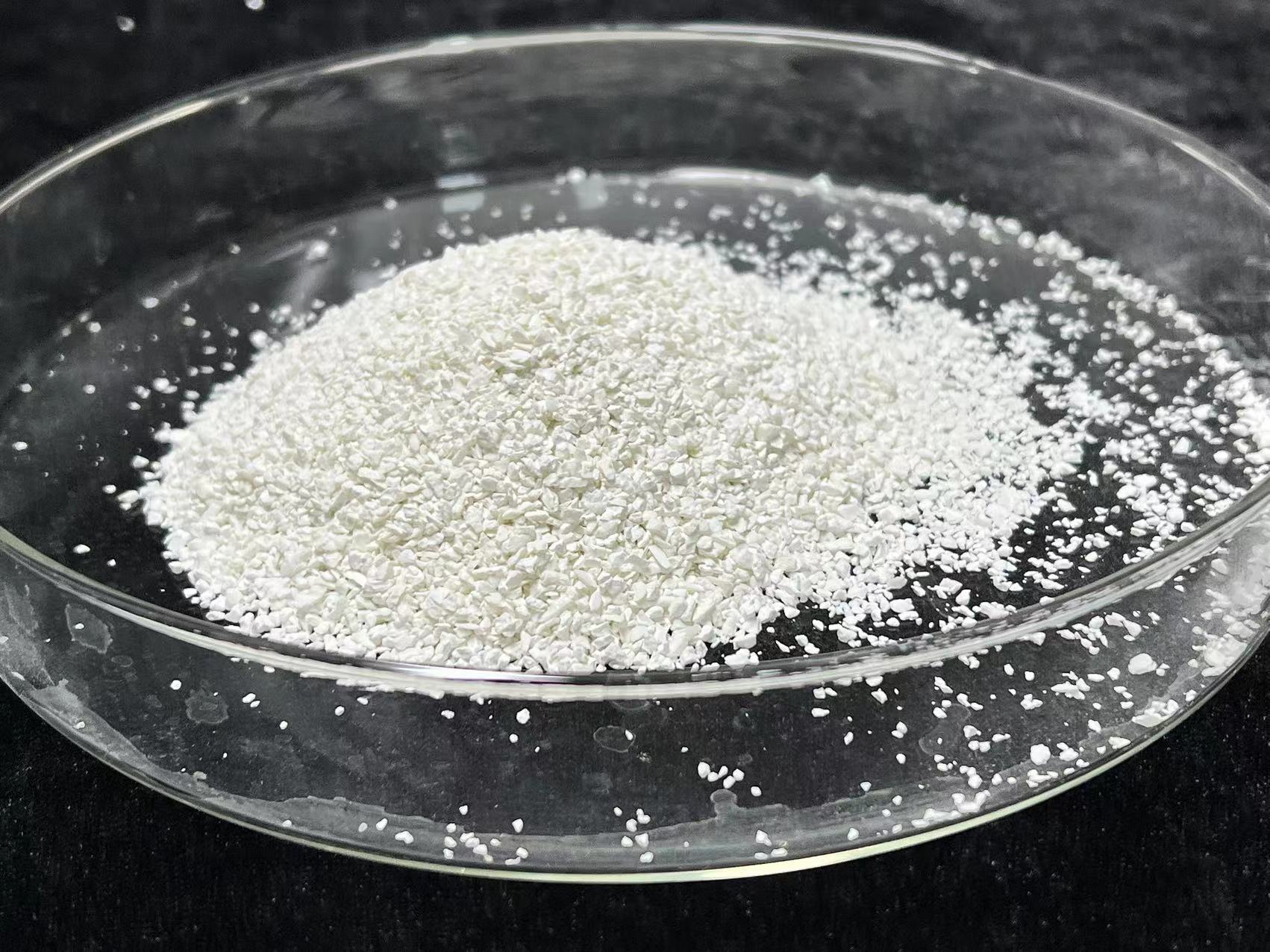07
2025
-
01
Can Calcium Hypochlorite Completely Dissolve?
Calcium hypochlorite is a common chemical. It is mainly used for cleaning pools, treating water, and disinfecting surfaces. One common question that arises among users and professionals is whether calcium hypochlorite can completely dissolve in water. This article will answer that question. It will also explore the factors that affect how well calcium hypochlorite dissolves.
Can Calcium Hypochlorite Completely Dissolve? A Comprehensive Guide

Introduction
Calcium hypochlorite is a common chemical. It is mainly used for cleaning pools, treating water, and disinfecting surfaces.
One common question that arises among users and professionals is whether calcium hypochlorite can completely dissolve in water. This article will answer that question. It will also explore the factors that affect how well calcium hypochlorite dissolves.
What is Calcium Hypochlorite?
Calcium hypochlorite (Ca(OCl)₂) is a white, granular or tablet form compound, often found as a strong oxidizing agent. It is most often used for its disinfecting qualities.
You can find it in swimming pools and water treatment plants. It is also used as a bleaching agent in industry. Calcium hypochlorite releases chlorine when dissolved in water, which makes it effective for sanitation purposes.
Calcium Hypochlorite Solubility: Key Factors
The solubility of calcium hypochlorite in water is influenced by several factors. Let's explore these in detail:
1. Water Temperature
The solubility of calcium hypochlorite increases with higher temperatures. At room temperature, which is about 20°C or 68°F, calcium hypochlorite dissolves slowly.
Some undissolved residue may still be left. As the temperature rises, calcium hypochlorite dissolves faster. This makes it more likely to fully dissolve in the water.
2. Water pH
The pH level of the water also plays a critical role in the dissolution process. Calcium hypochlorite is more soluble in alkaline water. If the pH is too low (acidic water), the compound may not dissolve as effectively. In higher pH environments, like pool water with pH levels between 7.2 and 7.8, calcium hypochlorite dissolves better.
3. Water Hardness
Calcium hypochlorite is less likely to dissolve completely in very hard water. Hard water has a lot of calcium and magnesium ions. These ions can react with hypochlorite ions and lower solubility. In regions with very hard water, you may notice some undissolved particles or a slower dissolution process.
4. Stirring or Agitation
The process of stirring or agitating the water can enhance the dissolution of calcium hypochlorite. When you add the granules or tablets to water and stir, it helps break down the compound. This allows it to dissolve more quickly. Without sufficient agitation, the dissolution process may be slow and incomplete.
5. Concentration of Calcium Hypochlorite
The amount of calcium hypochlorite being added to water can also affect how completely it dissolves. Adding too much of the chemical at once can cause some particles to remain undissolved. This is especially true in colder or harder water. It's essential to follow the manufacturer's instructions regarding proper dosage to ensure complete dissolution.
Can Calcium Hypochlorite Completely Dissolve?
Under ideal conditions—such as warm, alkaline water with minimal hardness—calcium hypochlorite can dissolve completely. In real-world conditions, complete dissolution may not always happen.
This situation occurs especially in low temperatures, high hardness, or when someone does not stir properly. In many cases, undissolved residues can form. This is why it’s important to mix well and control the temperature when using calcium hypochlorite.
How to Ensure Proper Dissolution of Calcium Hypochlorite
To ensure the complete dissolution of calcium hypochlorite and achieve optimal results, consider the following tips:
- Increase the Water Temperature: If possible, use warm water to dissolve the compound more effectively.
- Adjust pH Levels: Ensure the water is slightly alkaline to promote better dissolution.
- Stir or Agitate Well: Stir the water thoroughly after adding calcium hypochlorite to help it dissolve evenly.
- Use the Right Dosage: Follow the recommended dosage provided by the manufacturer for your specific application.
- Consider Water Quality: If you're working with very hard water, consider using a water softener to improve solubility.
Conclusion
Calcium hypochlorite can dissolve completely in water under the right conditions, including warm temperatures, alkaline pH levels, and proper agitation. However, things like hard water and low temperatures can slow down the dissolving process.
They may also cause some particles to remain undissolved. By knowing these factors and using the best practices for dissolving, you can use calcium hypochlorite effectively. This will help with disinfection and other uses.
calcium hypochlorite manufacturer,calcium hypochlorite supplier,Can Calcium Hypochlorite Completely Dissolve,calcium hypochlorite ,calcium hypochlorite factory
undefined





